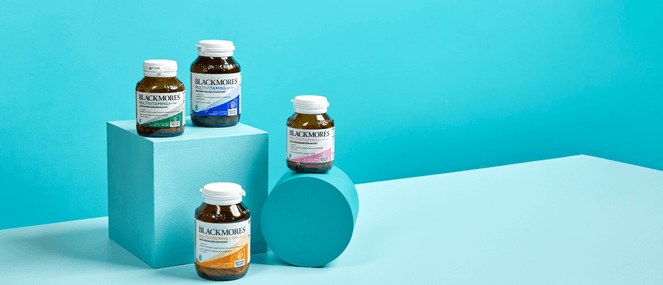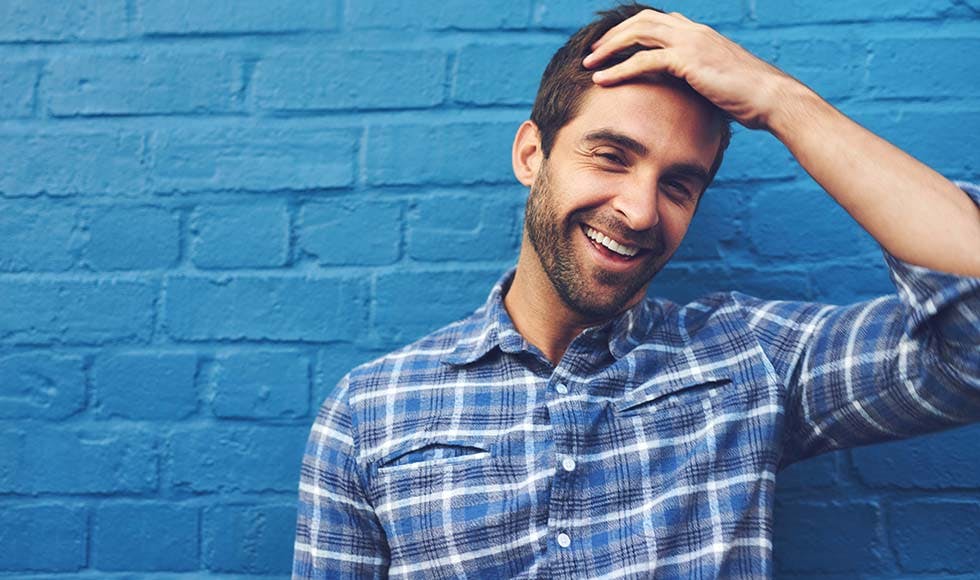


Fatherhood has changed a lot over the past few decades. Dads today are not only encouraged to be more hands-on with their kids but, largely due to more women returning to the workforce, many are taking on shared or primary care giving roles.
Dads today experience many things that, in many cases, their own father did not (as Russell Crowe and co. express so well in this excerpt). But with such change comes pressure and challenges. So, ahead of Father’s Day on Sunday 4 September, we speak with three dads to get a sense of what it means to be a father today. And to dads everywhere, we wish you all a very happy and healthy Father’s Day!
Graphic designer Matt Shepherd balances a full-time job with shared care of his two children aged four and two.
A career involving shift work frees Matt, 39, up to care for his two young children during the morning while his journalist wife takes on afternoon and evening parental duties. The Adelaide-based dad says he is very comfortable with such a care arrangement. “I cannot imagine not having spent quality time with my kids since they were born,” he says. Matt says his flexible work schedule makes a big difference to his family life. “I truly feel sorry for dads who have to leave home at 7am and don’t get home until dinner time.” Although women re-entering the workforce after having children is a major factor in an increasing number of dads doing more care giving, the father of two says living costs also play a part. “Not too many families can afford to live off one wage, pay a large mortgage and have a decent lifestyle these days,” he says. “Often the mum earns more money, so the dad will take extended time off work and stay at home with the kids.” Matt says sharing care of two small children while juggling full-time employment can be stressful but there are many upsides. “Things like being around to see the first steps, hearing the first words, seeing the everyday things that make your kids laugh – so many little things that I can’t particularly pinpoint them all.” But he admits it’s not all blue sky. “The bad stuff would have to be the countless messy nappies at the worst possible time or having to walk away from your son on his first day at daycare.” Yet despite such challenges the graphic designer says he would not change a thing. And for this doting dad material things are not what he is hoping for this Father’s Day. “I want a big, loving bear hug and kiss from my kids - that’s enough for me,” he says.
Over a decade ago Dr Arne Rubinstein was the primary care giver to two infant sons – finding the experience profound. While his children are now teenagers, Arne co-founded the Pathways Foundation, a charity assisting young people make the shift from being a child to becoming a young adult.
A martial breakdown when his two children were one and three years old was a wake up call for then full-time medical practitioner, Arne. “My wife went overseas for six months and I had my sons on my own,” he says. “It was an amazing experience - very difficult from a logistical point of view but for the first time in my life I had to put someone else’s needs in front of my own. “They didn't stick to my timetable or my agenda and I was still working full time as a doctor!” But rather than falling into a heap, the social venturer discovered playing the role of mum and dad was liberating. “I found myself doing things I would normally never do,” he says. “Like not just cooking but decorating the plate for the kids, or cutting out pictures from magazines to stick up in their room - it was like the mother energy inside me that had never been seen was coming out.” After his ex-partner returned, Arne took up shared care of his sons. “My boys and I are very open with each other,” he says. “Actually now they are teenagers they say we are all going through puberty together.” Although children, particularly teenagers, will always keep secrets from their parents, Arne says being close to his kids helped nurture open communication. “I know my sons have their private stuff but we talk about many things that I certainly never talked to my dad about,” he says. The 49 year-old former medical practitioner’s ideal Father’s Day is simple. “It would be spent with my sons,” he says. “Maybe breakfast in bed followed by a wrestle - then a day hanging out together.”
Corporate affairs manager James Tait works full-time while balancing fatherhood to a one year- old son and a second baby due any day.
The shift in traditional gender roles has opened up experiences to modern fathers that previous generations did not have. But James, 35, says increasing workplace demands apply to both mum and dad and are largely responsible for the evening out of child rearing duties. “I feel a big responsibility to do all I can to be there physically, as many hours as possible, for my son, but also mentally,” he says. As a traditional working father, James says the struggle to balance career and family is about more than just being hands-on in the home. “It's easy to come back from work feeling a bit punch drunk and not engage properly,” he says. “There's always a risk your child feels it’s something to do with them if you don't.” Although admitting he does not always get work/life balance right, the soon to be dad for a second time says he diarises family time, making sure it gets the same, if not more, status as work demands. The English native says he hopes by focusing on his son’s self-confidence, a strong father/son relationship is established. “Boys tend to get a lot of self esteem from having their successes celebrated by their fathers and I try to make sure I celebrate every little achievement my son makes as he develops,” he says. As a long-term supporter of Newcastle United, James draws on football to inspire his ideal, if not fictional, Father’s Day. “The perfect [father’s] day for me would have to be going to watch Newcastle United beat Manchester United convincingly with my little boy,” he says. “The tyranny of distance and football-related realities make this rather unlikely unfortunately.”




